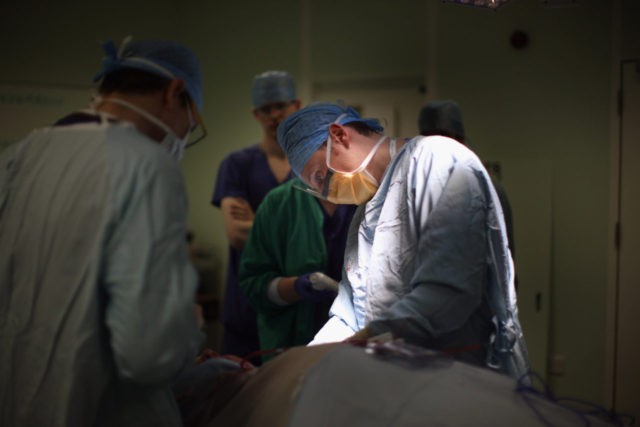Leaving the European Union (EU) is likely to make the National Health Service (NHS) safer for patients by driving up excellence and allowing management to crack down on poor language skills by foreign workers, Britain’s most senior surgeon has said.
Clare Marx, President of the Royal College of Surgeons (RCS), has called on health bosses to “seize the moment” and reform the NHS to shed European regulations which have hampered the service.
At the top of her wish list are changes to the language testing undertaken by foreign medical professionals when they apply to work within the NHS, and scrapping Working Time Directive rules which are hampering trainee surgeons’ abilities to gain sufficient hands-on experience, The Telegraph has reported.
Ditching Brussels regulations may also ensure higher standards of surgical equipment, she said, as European regulations currently fall below Britain’s gold standard.
Although the RCS remained neutral during the referendum campaign, Miss Marx has said that the vote to leave the EU hands the NHS a golden opportunity to get rid of regulations which hamper patient safety.
The NHS currently employs around 8,500 non-British doctors. But although EU regulations allow member states’ health bodies to test potential employees on their language skills, it is only able to use everyday scenarios to assess their capabilities. They are not, however, allowed to insist that applicants prove their technical language capabilities in a clinical setting.
The rules have allowed deadly mistakes to happen, such as in the case of Dr Daniel Ubani, a Nigerian-trained doctor with German citizenship who killed pensioner David Gray by injecting him with ten times the safe dose of diamorphine just hours after flying into the UK for his first shift as a locum out-of-hours doctor.
Describing Brexit as “quite an opportunity”, Miss Marx said: “We are concerned that the current testing remains insufficient and risks patient safety. We do language testing but we don’t do medical language testing. That language test is often just simply talking about everyday life.”
Patient safety would also be improved, she said, by ditching Working Time Directive rules which cost surgeons around 3,000 hours of extra training.
The Directive limits workers to a 48-hour working week, with 11 consecutive hours of rest between shifts in any 24 hour period. But while many surgeons opt out of the rules, NHS managers are required by the law to draw up rotas which take the directive into account.
This often has the unintended consequence of on-call doctors, who have slept undisturbed through their on-call period, nevertheless being sent home to “rest” instead of being allowed to take part in training.
Analysis by the RCS estimates that the rules cost surgeons up to 3,000 hours of hands-on experience over the eight to 15 years it takes to qualify as a surgeon. Miss Marx said the directive particularly impacted emergency surgery training as emergency procedures are, by their nature, impossible to schedule and often take place during times trainee surgeons are barred from working.
“Because of the working time regulations it’s been extremely difficult to get surgeons enough training,” she said.
“We have progressively seen doctors anxious because they are not getting enough hours.
“To get good at something you need repetitive experience in a training environment.”
Futhermore, Miss Marx said she believed leaving the EU would lead to higher standards enforced on surgical tools and instruments, which are currently signed off by EU regulators. She cited the example of laparoscopic instruments, used in key-hole surgery, over which there continue to be reliability concerns.
“The gold standard of testing and regulation is in Great Britain,” she said.
“We would like to see proper standards on medical devices imported from other countries.
“At present the testing in Europe is not as stringent as the UK requirement.”
A poll taken during the referendum campaign found that 32 per cent of the public thought that leaving the EU would be good for the NHS, while only 14 per cent said the NHS would suffer if Britain left the EU.

COMMENTS
Please let us know if you're having issues with commenting.